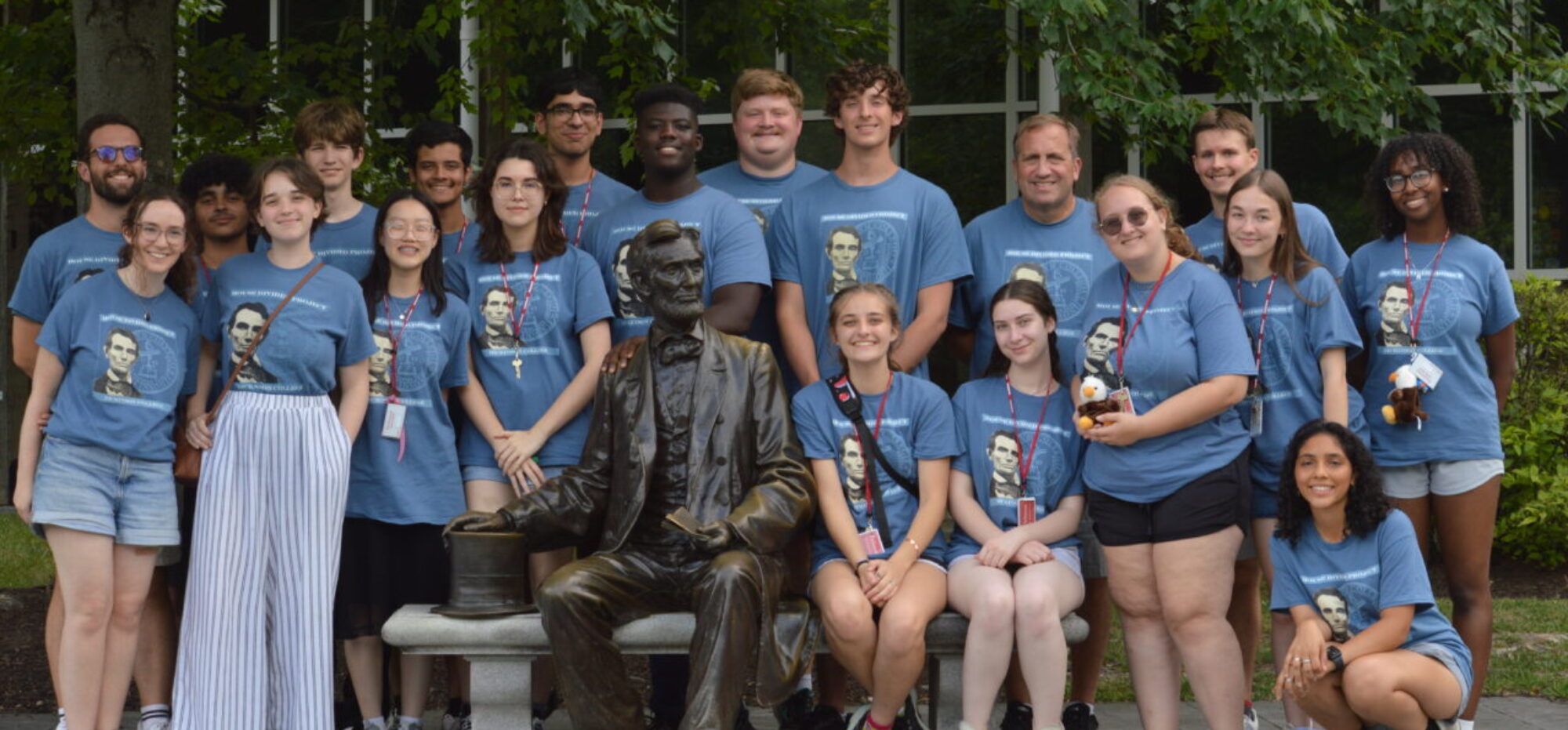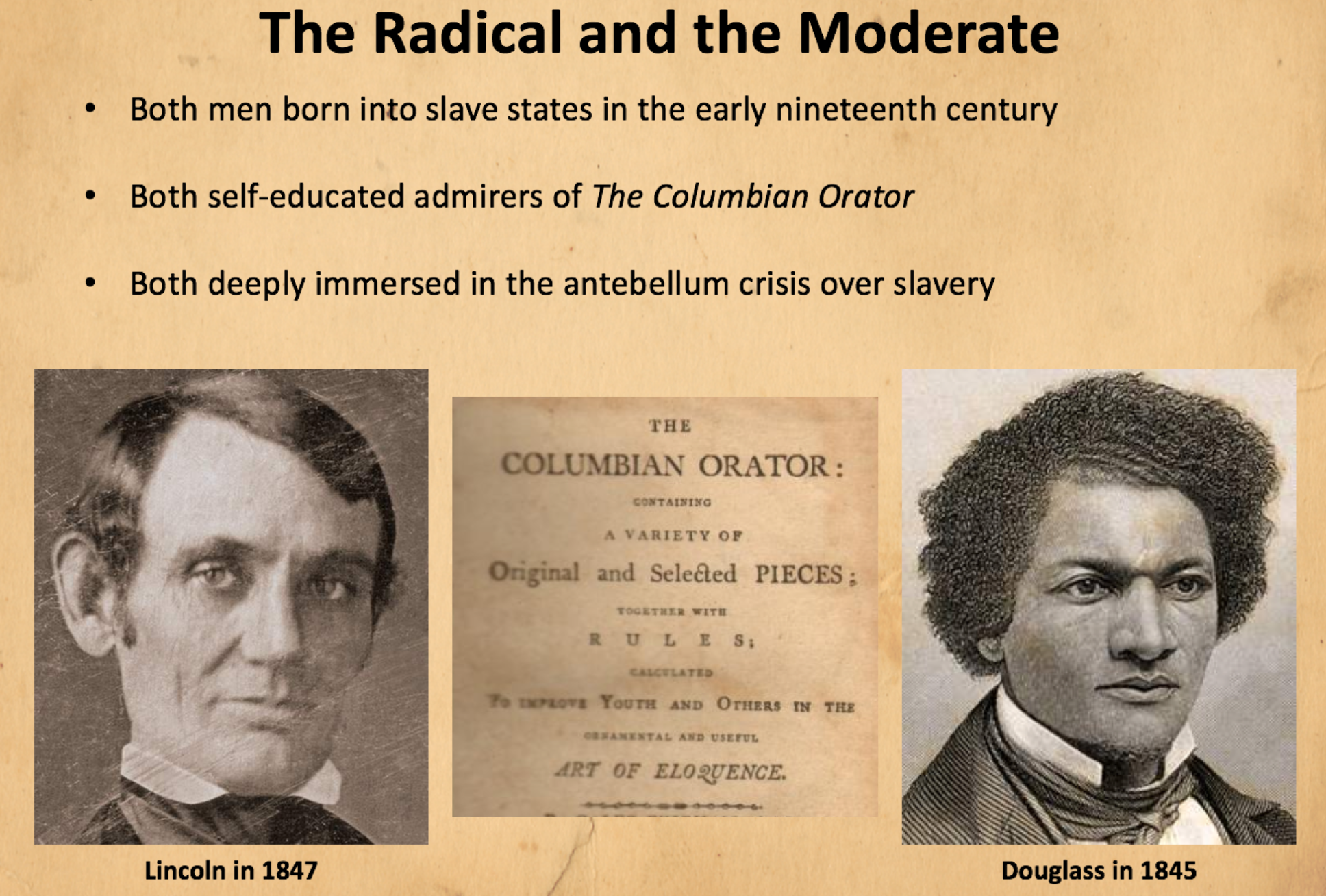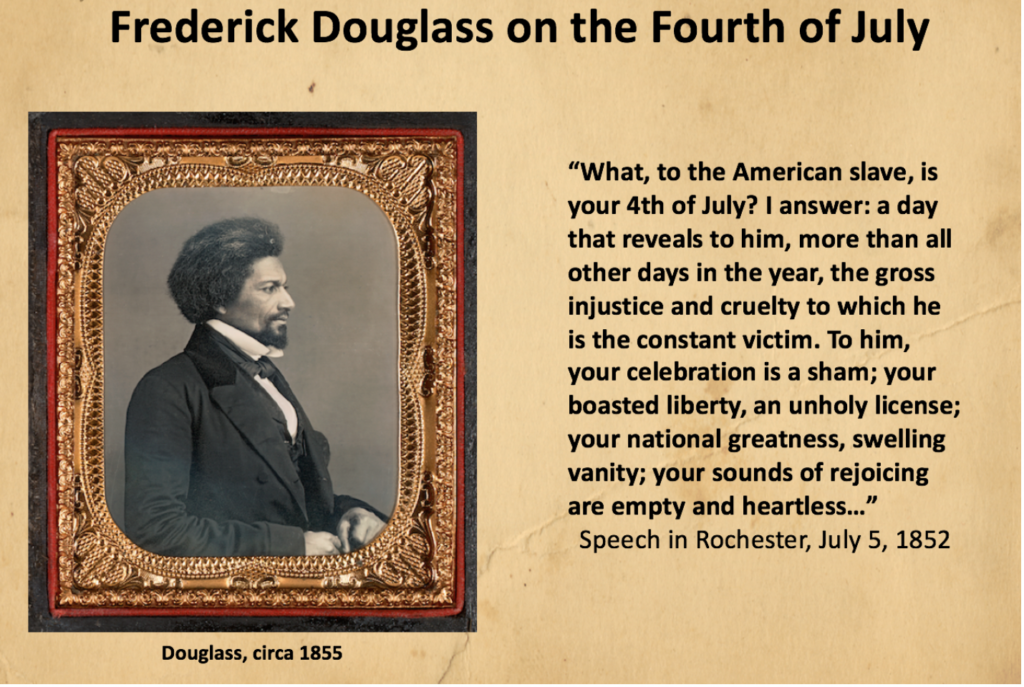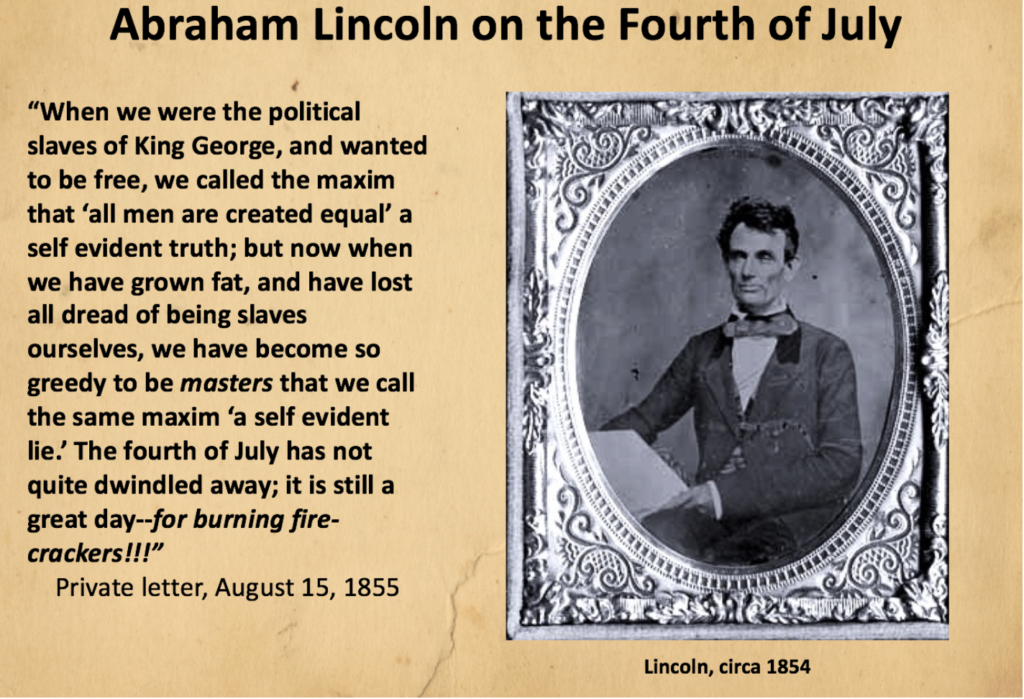If any personal description of me is thought desired desirable, it may be said, I am, in height, six feet, four inches, nearly; lean in flesh, weighing, on an average, one hundred and eighty pounds; dark complexion, with coarse black hair, and grey eyes — no other marks or brands recollected–
INTRODUCTION
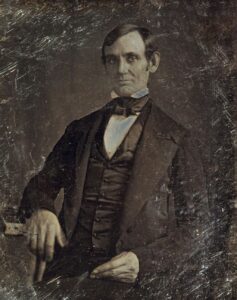
By the age of fifty, Abraham Lincoln was an attorney in Springfield, Illinois, running a two-man law firm. He had been married for seventeen years. The Lincolns had three surviving boys, with their eldest son Robert getting ready to try to become the first member of the family ever to go to college. Yet future president Lincoln was a more powerful national figure than it might appear. He was widely regarded as the leader of the Republican Party in Illinois. That was important because for the Republicans to win the presidency, they almost had to win Illinois, a key swing state in the electoral college of that era. Moreover, Lincoln had recently vaulted into popular consciousness following his impressive performance in a series of senatorial debates against Democrat Stephen A. Douglas during the fall campaign in 1858. So, it was really no surprise in late 1859 when a Pennsylvania newspaper editor reached out to Jesse W. Fell, a leading Illinois Republican whom he knew well, to ask if he could help secure some autobiographical information from Lincoln which they could use to create a profile of him as part of a series on leading Republican presidential contenders. The result from Lincoln was a short but revealing sketch that offered nothing about his wife or children or his faith but provided numerous signs that in describing his background that he was diligently trying to connect to various audiences in the Northern electorate.
SOURCE FORMAT: Letter and recollection
WORD COUNT: 710 words
J.W. Fell, Esq.
Springfield, Dec: 20. 1859
My dear Sir:
Herewith is a little sketch, as you requested– There is not much of it, for the reason, I suppose, that there is not much of me– If anything is made out of it, I wish it to be modest, and not to go beyond the materials– If it were thought necessary to incorporate any thing from any of my speeches, I suppose there would be no objection– Of course it must not appear to have been written by myself– Yours very truly
A. Lincoln
[ Enclosure:]
I was born Feb. 12, 1809, in Hardin County, Kentucky. My parents were both born in Virginia, of undistinguished families — second families, perhaps I should say– My Mother, who died in my ninthtenth year, was of a family of the name of Hanks, some of whom now reside in Adams, and others in Macon counties, Illinois– My paternal grandfather, Abraham Lincoln, emigrated from Rockingham County, Virginia, to Kentucky, about 1781 or 2, when, a year or two later, he was killed by indians, not in battle, but by stealth, when he was laboring to open a farm in the forest– His ancestors, who were quakers, went to Virginia from Berks County, Pennsylvania– An effort to identify them with the New-England family of the same name ended in nothing more definite, than a similarity of Christian names in both families, such as Enoch, Levi, Mordecai, Solomon, Abraham, and the like–
My father, at the death of his father, was but six years of age; and he grew up, litterally without education– He removed from Kentucky to what is now Spencer county, Indiana, in my eighth year– We reached our new home about the time the State came into the Union– It was a wild region, with many bears and other wild animals still in the woods– There I grew up– There were some schools, so called; but no qualification was ever required of a teacher, beyond the reading, writing, and Arithmetic “readin, writin, and cipherin” to the Rule of Three– If a straggler supposed to understand latin, happened to sojourn in the neighborhood, he was looked upon as a wizzard– There was absolutely nothing to excite ambition for education. Of course when I came of age I did not know much– Still somehow, I could read, write, and cipher to the Rule of Three, but that was all– I have not been to school since– The little advance I now have upon this store of education, I havehave picked up from time to time under the pressure of necessity–
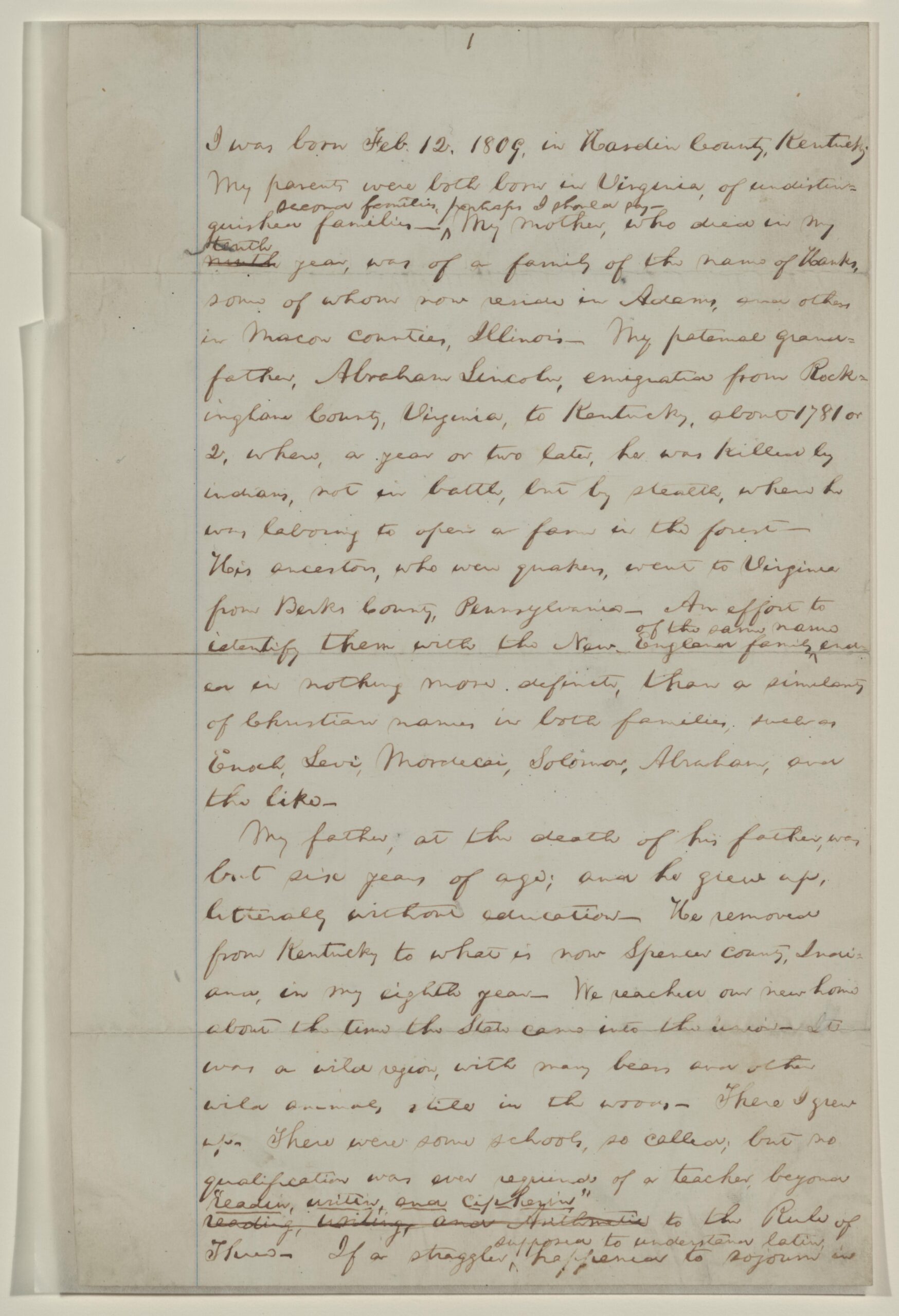
I was raised to farm work, which I continued till I was twenty two– At twenty one I came to Illinois, and passed the first year in Illinois — Macon County — Then I got to New-Salem ( then at that time in Sangamon, now in Menard County, where I remained a year as a sort of Clerk in a store– then came the Black-Hawk war; and I was elected a Captain of Volunteers — a success which gave me more pleasure than any I have had since– I went the campaign, was elated, ran for the Legislature the same year (1832) and was beaten — the only time I ever have been beaten by the people– The next, and three succeeding biennial elections, I was elected to the Legislature– I was not a candidate afterwards. During this Legislative period I had studied law, and removed to Springfield tomake practice it– In 1846 I was once elected to the lower House of Congress– Was not a candidate for re-election– From 1849 to 1854, both inclusive, practiced law more assiduously than ever before– Always a whig in politics, and generally on the whig electoral tickets, making active canvasses– I was losing interest in politics, when the repeal of the Missouri Compromise aroused me again– What I have done since then is pretty well known —
If any personal description of me is thought desired desirable, it may be said, I am, in height, six feet, four inches, nearly; lean in flesh, weighing, on an average, one hundred and eighty pounds; dark complexion, with coarse black hair, and grey eyes — no other marks or brands recollected–
CITATION: Abraham Lincoln to Jesse W. Fell, December 20, 1859, enclosing autobiography, FULL TEXT via Collected Works of Abraham Lincoln
I have always hated slavery, I think as much as any Abolitionist. –Abraham Lincoln, July 10, 1858
DISCUSSION QUESTIONS
- Why did Lincoln warn Jesse Fell in his cover note that the forthcoming newspaper profile “must not appear to have been written by myself”? What did that minor deception suggest about “Honest Abe”?
- How might Lincoln have been trying to connect with potential voters in his calculated description of his ancestors, his childhood, and his early career? Why is it helpful to see where he made corrections?
- Why didn’t Lincoln follow the ordinary political customs of extolling his immediate family and his faith in this autobiographical sketch for a presidential campaign profile?
FURTHER READING
Lincoln’s track record in politics is often misunderstood. He lost a popular vote only once, in his first race for state representative, when he was just twenty-three years old, barely employed, and recently arrived in a new town. –Matthew Pinsker
- “Abraham Lincoln,” Chester County Times, February 11, 1860 (via Herbert Mitgang, ed., Press Portrait of Abraham Lincoln)
- Lincoln’s Autobiographical Sketch, Lincoln’s Writings: The Multi- Media Edition
- Matthew Pinsker, Lincoln’s Campaigns & Elections in Abraham Lincoln (CQ Press, 2002)
- Handout –Lincoln’s Autobiography
